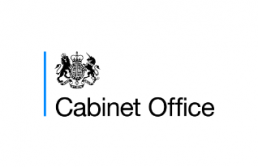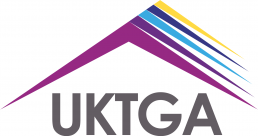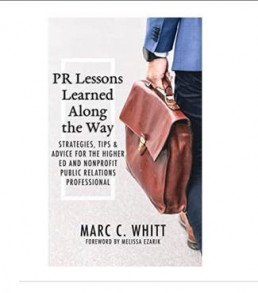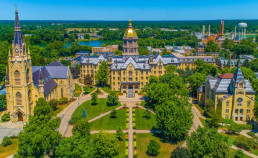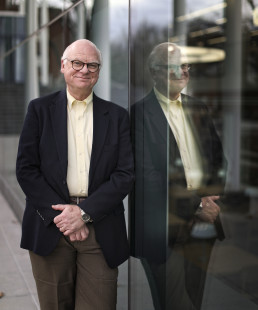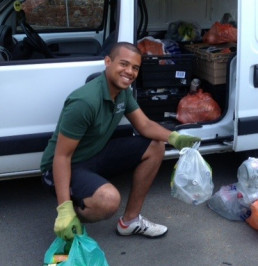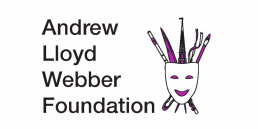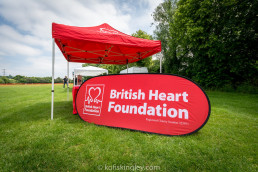UK Government Update: Managing student returns
Please find as follows a link to guidance issued by the UK Cabinet Office, to support Higher Education Institutions as we manage our student return: https://coronavirusresources.phe.gov.uk/Back-To-Higher-Education-/resources/Back-To-Higher-Education-Toolkit/
Universities in the New Normal: Is It Time to Rethink our Values?
Back in July, fellow colleague and good friend of UKTGA, Kevin Richardson hosted a workshop on Universities and their need to assess their current situation sin this CV-19 era.
Take a look at his full research here:
Universities in the New Normal: Is It Time to Rethink our Values?
A Provocation!
The proposal to government from Universities UK seeking a financial bail-out in the current crises is not just about money in the short term. The proposal can be seen as the first of many possible steps in establishing a new normal for the system of higher education in England as a whole. Things that mattered most in the days before COVID may well no longer have the same relevance. The concept of unfettered competition and the potential for universities to be allowed to ‘exit the system’ with no apparent thought to the inevitable local social and economic implications may well have ended. Independence and autonomy may well become a much more relative term as new strings are introduced, and as the sector may well be forced to accept a new ‘regime’ and ‘fundamental’ reform. The sector can allow the government to dictate the design of the new normal or it can consider for itself how better to base those futures. It can hang on to artificial technocracy of the old ways, or it can define a new future much more soundly based on their reflections of their positive contributions to the COVID crises, and on renewed fundamental values which underpin the real purposes of what it is meant to be a new university in the new normal. In summary, it can’t have its cake and eat it...
Universities across all parts of the country responded to the health crises with real pace, skill and scale to support its students, stakeholders and local communities. The physical and mental health of students was recognised immediately as being of paramount importance. Hardship Funds and Food Banks to help students in financial need were set up or expanded in scale. Students were sent home to find that replacement provision of much teaching had largely migrated online with previously unbelievable speed. The simplistic notion that universities were not in loco parentis was ditched immediately. In its place was a genuine and sensitive approach to pastoral support for its students which it accepted, by its actions, were in its care. Administratively, universities agreed with government and its agencies that work on the Research Excellence Framework could be effectively suspended with immediate effect. Universities agreed also to a form of a ‘deal’ in the competition to attract students, albeit temporarily, and even if some universities are likely to benefit more than others. These new approaches were underpinned implicitly by values rather than by money or basic institutional survival.
The excellent work of universities in the health crises was not limited to students and staff on campus. Yorkshire Universities, as one example, easily and quickly collated an iterative database of all actions undertaken by universities in collaboration with its stakeholders across that county.
Doctors, nurses and other medical staff were graduated and released early to go to work immediately on the front line of the fight against the virus. Specialist equipment in university laboratories were commissioned to produce PPE equipment, sanitising liquids, ventilators and other breathing apparatus. Other labs were commissioned and car parks were offered up at urgent notice to deliver COVID testing. Online training was delivered to NHS staff who had been reallocated to work on COVID priorities. Numerous university facilities were made available free of charge to fee and accommodate health service staff. University staff were given paid leave to volunteer their specialist knowledge in local hospitals. Social science researchers have been deployed around the region to study the socio-economic impacts of the virus in local communities. Local businesses have been provided with new training and advice and guidance services provided free of charge. Senior university officials joined local COVID Task Forces to help develop more aggregated approaches across different institutions. Universities across Yorkshire have delivered for their local community even in the face of potentially severe financial pressures of their own. Universities in all other regions can tell a very similar story.
Universities have demonstrated that they stepped up to the plate to support their community in their local place. Universities have deployed their often very significant assets as an anchor institution in partnership with other stakeholders, their willing staff and their students. These examples will do much to (re)build the trust and confidence that local people have in their university. The new links established between the university and local communities are likely to last long after the immediate crises, and should be built upon. Universities will do well after the immediate crises to reflect on the values, which underpinned these contributions of which they can be proud. They can compare those values and actions against the drivers which motivated and focussed their behaviours before the crises, and what they perceived then, as the primary purpose of their university.
The objective of a university should not be to rise up in whatever specific newspaper ranking system best suits the specific interests of any university. Nor should it be to secure a good score in the REF in order to attract more QR funding for research, or to win more money from challenge led competitions managed by the Research Councils. It should not be to build the number of citations or patents lodged. Nor should it be to get a good score in the TEF or recognition from students in the National Student Survey. The primary purpose of a university is not to grow in order to become more financially sustainable, or for the supposed status that is perceived as deriving from such growth, or even growth for its own sake. Nor is the purpose of a university to solve problems around the world if that is done simply to build prestige and attract further funding. Some of these aims and activities are good things and are useful to measure but they should not be the overriding purpose of any university.
Most universities were established by the hard efforts of local people, local businesses and civic society to support the development of the local economy as it first industrialised and then continued to grow. Universities trained the skilled workers needed by firms and developed the technology needed to protect the environment. They trained the doctors and scientists needed to improve the health of the workforce and the quality of the local environment. These functions of a local anchor institution remain as relevant today as they did in the past, and no more so at this time of ever widening economic disparities, and at this very moment as we seek to recover from the triple crises of the environment, health and the economy. We have seen that our universities have demonstrated recently that they can deliver locally on these agendas as only anchor institutions can. But, equally, nor do these important functions alone represent the purpose of a university.
The real purposes of a university are to enthral, to excite, to stimulate, to act as a catalyst for untrammelled open-eyed curiosity and for hard and crunchy critical thought. It is to offer new and seemingly unlimited opportunities to all people, especially those who would otherwise not have the same life chances. It is about bringing together people of all backgrounds, in peace and in friendship, to learn and to wonder together, because that is the right thing to do, not because the university needs to make a profit from international visitors. The purpose is to build and develop people to be better human beings, equipping them with the knowledge, understanding, skills and tools which they can use and develop further throughout the rest of their life. The purpose of a university is also to find new opportunities to do things better, to help the economy be more productive and more sustainable, and, increasingly, to solve wider societal challenges that are, in no way addressed by the perceived benefits of the supposedly value free, free market. Crucially, it is to build and to share freely that new knowledge with all others that need it. The fundamental purpose of a university is therefore relatively simple to define. It is why most universities were formed and remain legally established as a charity and not as a business. It is simply to do good.
Each and every university has a strategy which contains a vision. Some last a long time and others only until the next vice chancellor is appointed. Some drive cultures and focus activities over the longer term, and are widely held across the university. Others lie redundant in a glossy binder on a dusty shelf, or in a dark and unread corner of the internet. Many strategies speak of enhanced reputation and growth, ‘going up the rankings’, and competing to attract more students and more researchers and more research money to fund those researchers. The notion of ‘excellence’ is often widely promoted even if only a few seek to define that term in any meaningful detail. There are some universities who can demonstrate with real and hard practical examples how they are delivering at both global and local levels, but the geographical balance in the scope of many universities is often portrayed as more national or even global, much more so than local, as those wider perspectives are perceived by many as bringing greater prestige, and, as a result, more students, more research and more money. But fewer university strategies set out within any real precision the values which are important to it as an institution and as a community, and critically, how those values were established and how management works with these values to embed them into everyday cultures and decision making.
The health crises and the economic crises that is now unfolding, including the financial black hole facing many universities, is a time when institutions can, should and must consider again how its own values will inform its new futures. The new normal will not be the same as the old normal. What worked in the past may very well no longer work in the future. Values such as ‘internationalism’ can no longer be equated simply with income. Higher education as a sector will be much less about unrestricted ‘competition’ and less also about defining and measuring ‘excellence.’ Institutional ‘independence’ and ‘autonomy’ can be only now be more relative when the sector is now even more dependent on the government and its use of taxpayer finance.
The best universities in the world are clear about the values which they think are most important to them and how they use these values to drive their culture and practices.
New values are now needed more than ever. How can universities be more ‘kind’? How can they ‘care’ more, and ‘share’ more, building on, and continuing the good work they demonstrated during the CIVID crisis? Now aware that some BME people are much more likely to die from COVID as white people, how can universities make a much more substantial and effective contribution to the genuine ‘inclusion’ of more people from different backgrounds, especially those who have been discriminated against by their socio-economic background, ethnicity, disability or sexuality? How can a university decide whether to fund new research activities when the money could alternatively be used to continue to provide free hot meals as it did during the crises to homeless people in the food kitchen across the street? Indeed, what values does the university now place on key workers and how can it decide how best to build further the skills of these key workers? What new and real value does the university place on its relationship with other stakeholders with whom it cooperated so closely during the COVID emergency. What value does it place on collaboration rather than competition? What value does the university place on its civic role of collaborative leadership it demonstrated during the health crises and again now, as it and other anchor institutions pull together to build a new local economy? How does a university decide what is most important? The discovery of a fantastic new theoretical technology that may never brought to market? Or more simple methods to make best practical use of existing technologies in new ways; as it did with the very rapid adaption of ventilators? It is only the use of new values that can help make these new decisions within the new normal.
The new values that will become more important to a university can only reflect those of its local communities and of its local stakeholders. New values cannot be imported from the latest fashionable academic textbook, from simplistic governmental jargon or slogans, nor indeed, simply and only from its experiences in the health crises. Nor can values just be single words presented neatly in yet another glossy document. Values must be embedded across the entire organisation, even within the most collegiate and otherwise fragmented institutions. The university needs to demonstrate practically how values will used to design strategy and to make operational decisions. How will it use these values to attract more of the students and researchers that are more likely to demonstrate these values. Senior management, including the vice chancellor in particular, will need to lead the adoption of new values and will need to visibly accountable for delivery and impact on performance. Values can only have meaning and real effect if most of the external stakeholders of a university can recount those values with ease and without prompting, and if they confirm that they believe they are genuine.
Seeking to build a new normal that is based on values rather than on quasi-artificial performance metrics can much more easily drive a university to set itself apart from others to attract more students and researchers. A values approach can embed a university more strongly within its local state and it can then benefit from its political influence and financial systems. Firms of all sizes and from all places, local and national, will be much more aware of cultures, capacities and motivations. Demand and private cash contributions for research will rise. It may cost more money in the short term, new investments will be needed, and it may well take time for the fuller benefits to feed through, but the longer-term outcomes can only be better than the kinds of shorter term and narrower focus of the technical and financial outputs that many universities are currently required by the current system to seek.
Universities can learn much from the good they did during the health crises. They can build their own futures based on the values that matter the most and are really important.
PR Lessons Along the Way receives stellar reviews
PR Lessons Learned Along the Way: Strategies, Tips & Advice for the Higher Ed and Nonprofit Public Relations Professional Lands Amazon's "#1 New Release in Public Relations" Spot for June
Higher Education PR Veteran Marc Whitt Authors Book Named to Public Relations and Communication Association's "Recommended Reading List" and Recommended by United Kingdom Town & Gown Association Leaders
Lexington, KY (June 30, 2020) – PR Lessons Learned Along the Way: Strategies, Tips & Advice for the Higher Ed and Nonprofit Public Relations Professional, a book that has already received rave editorial reviews by higher education and nonprofit leaders from across the United States and United Kingdom, maintained Top 5 status in Amazon Book's "New Release in Public Relations" category for the month of June – most of those weeks at the Number 1 spot, announced Adam Turner, president of Cherrymoon Media, a publisher based in Lexington, Ky. The book is available in print and Kindle formats via Amazon Books.
The 272- page book, named by the Public Relations and Communications Association (PRCA) to its "Recommended Reading List," is by first-time author, Marc C. Whitt, a 35-year veteran of higher education and nonprofit public relations. Whitt currently serves as director of media and strategic relations at the University of Kentucky Office of Public Relations and Strategic Communications and is a part-time instructor at UK's Department of Integrated Strategic Communication. The foreword is written by nationally-respected higher education journalist Melissa Ezarik, senior managing editor of Connecticutt-based University Business magazine.
Whitt has written a book filled with strategies, tips and advice addressing pertinent topics for those in higher education or nonprofit public relations. More than 20 chapters cover topics such as program leadership and management, crisis communications, social media, earned media, storytelling, philanthropy and donor communications, town and gown relations, branding, event planning and much more.
Interspersed throughout the book are many of the career lessons Whitt said he has personally learned and experienced during his career. He has taken these experiences and insights and shares them with the reader in an open, honest, inspiring and insightful way, said Turner.
"PR Lessons Learned Along the Way is written in a conversational tone," Turner added. "That was intentional on Marc's part and true to his personality and character. He wants the young, mid-career or senior professional to feel as if they are sitting down with him over a cup of coffee or glass of sweet tea talking shop as they learn from one another. Not only do I believe he has successfully captured this in the book, but so do many in the public relations profession who have reviewed it."
Cooper Healey and Poppy Humphrey with the United Kingdom Town and Gown Association (www.uktga.org) have been enthusiastic readers of Whitt's book since its release and have offered editorial reviews.
"Marc Whitt takes a complex subject and gives the reader straightforward, practical advice," said Healey, chair of UKTGA. "One is reassured that the potential challenges associated with 'town and gown' can easily be overcome by following simple, common-sense guidelines. Not only limited to university, community and municipal issues, Marc deftly addresses the potential to enhance the economy by engaging with all sectors, particularly tourism. Marc writes in a comprehensive, easy to follow style with points clearly set out. A pleasure to read, this book is a must for all involved in the 'town and gown' debate."
Healey's associate, Poppy Humphrey, UKTGA's North West Representative and an off-campus student affairs officer for Manchester Student Homes, concurs.
"(PR Lessons Learned Along the Way) is a true delight of a read that clearly sets out the strategic and practical approaches to developing expertise in the world of PR," said Humphrey. "Marc Whitt draws on key principles harnessed throughout not only his career, but also intertwines these lessons with reflections from wider life experiences. Marc invites the reader to trip through the narrative, interspersing motivational and thought-provoking quotes which both challenge and inspire. Many of the principles can be applied not only in a work setting but as building blocks for life. Marc sets out a blueprint for successfully navigating the reader through the intricacies of managing town-gown relations, in both an eloquent and accessible way."
About the Author
Marc Whitt is Director of Media & Strategic Relations at the University of Kentucky's Office of Public Relations and Strategic Communications. He also serves as a part-time instructor in UK's Department of Integrated Strategic Communication and is a former PR and marketing columnist for the national trade magazine, University Business. During his nearly 35 years in higher education, Marc's work has achieved measurable results garnering over 40 honors including back-to-back CASE Silver Medal Awards for Total Institutional Relations Program. In 2015, he received the James C. Bowling Excellence in Public Relations Award. Presented by the UK Journalism Alumni Association and UK Department of Integrated Strategic Communication, the award is given to the "outstanding public relations practitioner with ties to Kentucky." That same year, he received the Distinguished Alumnus Award from the Eastern Kentucky University Department of Communication. In 2003, he was named an Honorary Alumnus of Campbellsville University.
Recently Onalytica, a firm that identifies social influencers, named him among the "Top 100 Public Relations Influencers on Twitter;" he was ranked 21st. Additionally, CASE Kentucky presented him with its Beth K. Fields Service Award for Leadership in Advancement.
In previous years, Marc has served on the Association of American Colleges & Universities Advisory Council on Communications and Public Affairs (two of his eight years as national chair), the CASE District III (Southeast US) Board of Directors and the International Town & Gown Association Board of Directors. He has consulted organizations such as the Christian Appalachian Project, The National Association of Music Parents, Witnessing History Education Foundation, among others.
Marc earned a Master of Arts Degree (1985) and Bachelor of Arts Degree (1982) from Eastern Kentucky University.
Marc and his wife, Jennifer, formerly of Paintsville, Ky., reside in Richmond, Ky., and are the parents of three children: Emily Fields (Mark), Elizabeth Muncie (Christian), and Jacob; and the grandparents of Annaleigh and Aubrey Fields.
PR Lessons Learned Along the Way: Strategies, Tips & Advice for the Higher Ed and Nonprofit Public Relations
35-Year Public Relations Professional Marc Whitt Authors Book Named to PRCA’s “Recommended Reading List”
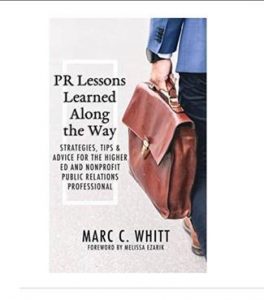
Lexington, KY (May 27, 2020) – PR Lessons Learned Along the Way: Strategies, Tips & Advice for the Higher Ed and Nonprofit Public Relations Professional, a book that has already received rave editorial reviews by higher education and nonprofit officials from across the United States and United Kingdom, is set for release June 1, announced Adam Turner, president of Cherrymoon Media, a publisher based in Lexington, Ky. The book will be available in print and Kindle formats via Amazon Books.
The 272- page book, named by the Public Relations and Communications Association (PRCA) to its "Recommended Reading List," is by first-time author, Marc C. Whitt, a 35-year veteran of higher education and nonprofit public relations. Whitt currently serves as director of media and strategic relations at the University of Kentucky Office of Public Relations and Strategic Communications and is a part-time instructor at UK’s Department of Integrated Strategic Communication. The foreword is written by nationally-respected higher education journalist, Melissa Ezarik, senior managing editor of University Business magazine.
Whitt, a resident of Richmond, Ky. and native of Paintsville, has written a book filled with strategies, tips and advice addressing pertinent topics for those in higher education or nonprofit public relations. More than 20 chapters cover topics such as program leadership and management, crisis communications, social media, earned media, storytelling, philanthropy and donor communications, town and gown relations, branding, event planning and much more.
Interspersed throughout the book are many of the career lessons Whitt said he has personally learned and experienced during his career. He has taken these experiences and insights and shares them with the reader in an open, honest, inspiring and insightful way, said Turner.
“PR Lessons Learned Along the Way is written in a conversational tone,” Turner added. “That was intentional on Marc’s part and true to his personality and character. He wants the young, mid-career or senior professional to feel as if they are sitting down with him over a cup of coffee or glass of sweet tea talking shop as they learn from one another. Not only do I believe he has successfully captured this in the book, but so do many in the public relations profession who have reviewed it.”
Here is a sampling of what a few reviewers had to say:
"I have been looking forward to the day Marc Whitt would share his wisdom in a book. Marc has always been a leader in our field, no matter his institutional or professional association role. His casual writing style makes this book a real treat to read, and I suggest you keep it on your desk for quick reference." - Larry D. Lauer, Vice Chancellor Emeritus, Texas Christian University, and Author of Best-selling Advancing Higher Education in Uncertain Times
"Marc Whitt's book, PR Lessons Learned Along The Way, is truly remarkable -and I say that having reviewed many PR books in my time. The advice 'Maintain a good sense of humor. It will always see you through life's ups and downs' has surely never been more apt than today, with so much bad news around us. And yet the optimism that runs through this book is precisely what we need right now, and is also precisely true. Our profession's embrace of professionalism; of constant improvement; and of strategy make it -as Whitt argues- indispensable. PR is a conversation, not a lecture. And reading this book feels exactly that -one expert having a conversation with his readers, and imparting the knowledge of decades along the way." - Francis Ingham, MPRCA, Public Relations and Communications Association, Director General, London, England
"PR Lessons Learned Along The Way is a superb resource offering context and guiderails to manage nonprofit and higher education brands in a strategic and sustainable way. Marc reminds us of the inherent service orientation of our calling, the imperative of values such as leadership, integrity and urgency, the value of playing the long game, and the devil that resides in the detail of public relations work. Whether you are a communications rookie, a mid-career professional or a seasoned expert, you will come away from PR Lessons Along The Way feeling empowered and maybe even a little more in love with the craft than you were yesterday." - Morgan Roth, Senior Vice President, Communication & Marketing, The ALS Association, Washington, DC
"Marc Whitt's book is an indispensable guide for all of us currently in public relations and advancement, as well as for anyone seeking to enter the field. Marc applies his many years of experience to each topic he addresses, but his tone is never condescending or 'know-it-all' - instead, he offers pragmatic advice and solutions that will help everyone from the PR newbie to the seasoned veteran."- Jeffrey T. Spoeri, Associate Vice President for University Advancement, Lamar University, Beaumont, Texas
"Have you ever found yourself nodding and saying, 'Yes, yes!' while reading a book? When a writer unveils morsels of wisdom that ring true, that's what happens. In PR Lessons Learned Along the Way, Marc Whitt becomes our mentor, an experienced friend willing to bare his heart and soul. Marc's observations are born out of being in the trenches, making mistakes and achieving monumental goals. As I read his words, it is as though we are sharing coffee and war stories, congratulating the other on a success or putting balm on a wound. Buy this book. Read it through. And when you need a pep talk or a reminder of why PR is the best profession in the world, pick it back up. You'll put it down smiling again." – Nancy Wiser, President, Wiser Strategies, APR, PRSA Fellow, Lexington, Kentucky
"If Dale Carnegie ever wanted to write a sequel to How to Win Friends and Influence People, PR Lessons Learned Along the Way would be it!" - Tom Hayes, Dean, Williams College of Business, Xavier University, Cincinnati, Ohio, and Author, Marketing Colleges and Universities, A Services Perspective (CASE Alice Beeman Award Winner)
About the Author
Marc Whitt is Director of Media & Strategic Relations at the University of Kentucky's Office of Public Relations and Strategic Communications. He also serves as a part-time instructor in UK's Department of Integrated Strategic Communication and is a former PR and marketing columnist for the national trade magazine, University Business. During his nearly 35 years in higher education, Marc's work has achieved measurable results garnering over 40 honors including back-to-back CASE Silver Medal Awards for Total Institutional Relations Program. In 2015, he received the James C. Bowling Excellence in Public Relations Award. Presented by the UK Journalism Alumni Association and UK Department of Integrated Strategic Communication, the award is given to the "outstanding public relations practitioner with ties to Kentucky." That same year, he received the Distinguished Alumnus Award from the Eastern Kentucky University Department of Communication. In 2003, he was named an Honorary Alumnus of Campbellsville University.
Recently Onalytica, a firm that identifies social influencers, named him among the "Top 100 Public Relations Influencers on Twitter;" he was ranked 21st. Additionally, CASE Kentucky presented him with its Beth K. Fields Service Award for Leadership in Advancement.
In previous years, Marc has served on the Association of American Colleges & Universities Advisory Council on Communications and Public Affairs (two of his eight years as national chair), the CASE District III (Southeast US) Board of Directors and the International Town & Gown Association Board of Directors. He has consulted organisations such as the Christian Appalachian Project, The National Association of Music Parents, Witnessing History Education Foundation, among others.
Marc holds a Master of Arts Degree (1985) and Bachelor of Arts Degree (1982) from Eastern Kentucky University.
Marc and his wife, Jennifer, reside in Richmond, Kentucky, and are the parents of three children: Emily Fields (Mark); Elizabeth Muncie (Christian); and Jacob; and the grandparents of Annaleigh and Aubrey Fields.
About Cherrymoon Media
Cherrymoon Media is a multimedia company based in central Kentucky, specializing in book publishing, music management, and web development services.
The Impact of COVID19 on University towns and cities
Our good friend and exceptional colleague Steven Gavazzi has wrote about the impact of the Coronavirus pandemic on American Colleges' cities and towns.
Until recently, college towns were thought to have a distinct economic advantage over municipalities that did not host an institution of higher learning. Colleges and universities were touted as “anchor institutions,” a term indicating their long-term investment in the communities they served. With the COVID-19 pandemic, however, these same towns now face very real economic peril. Students have been sent back to their homes to reduce the spread of the virus. Gone with them is the purchasing power they had poured into the local economy.
So far, significant government attention has been paid to the current fiscal difficulties faced by our nation’s colleges and universities. Most importantly, this includes $14 billion in aid from Congress to institutions of higher learning (half of which must be used for emergency student financial aid) embedded in the $2.2 trillion CARES Act (an acronym that stands for Coronavirus Aid, Relief, and Economic Security). While state and local governments also stand to benefit from CARES Act money through a $150 billion fund, there is nothing in the congressional action that addresses the specialized needs of college towns.
Chief among the unique aspects of the college town is the back and forth movement of students and how those population swings impact the local economy. When students arrive on campus in the fall, businesses thrive. Apartments are rented, back to school supplies are purchased, etc. Once students settle in, they frequent coffee shops, restaurants, bars, and various entertainment venues surrounding campus. Home football games and other large social events hosted by universities add to the mix. Food and beverages are bought in copious quantities by participants in the revelry. Hotel rooms fill, collegiate merchandise is snapped up, and gas tanks are filled, among other purchases made by these weekend visitors.
When the academic year is over in the spring, students graduate or go back to their hometowns for the summer. Sports seasons are completed, and other campus events wind down. Hence, the college town population contracts for several months, and the economy slows to a trickle of its former self. In a normal year, this downturn is relatively brief, and it can be anticipated by local businesses. Now, however, the COVID-19 pandemic has brought the local economy to an almost immediate and complete standstill, and many months earlier than had been anticipated.
Alarm bells are beginning to ring among various individuals and organizations familiar with the plight of college towns. For example, a recent webinar on this topic was organized by the International Town-Gown Association with the title “College Towns in Crisis.” Attended by campus and community representatives from across the country – including mayors, city managers, town council members, and university staff members – it proved to be an interesting conversation, to say the least.
The NSBO Network
The Nordic Association for Student Housing was established in 1975 and is a co-operation between Nordic student housing companies. The main purpose of NSBO is sharing knowledge about student housing in the Nordic countries. It’s a meeting place for inspiration of planning, construction and maintenance of student housing and serving the students living in them. Members include Universities, University Students Unions and private providers.
The NSBO hosted a webinar on 3rd April, which brought together representatives from the UK, USA, Netherlands, Lithuania, Finland and Norway, to share knowledge and exchange best practice on the current CV-19 situation within the student housing context.
The webinar was an opportunity to share best global practices, horizon scanning and feeling connected amongst the Covid-19 outbreak before breaking into breakout sessions to discuss issues more intimately.
The NSBO network is open for anyone with an interest in student housing from a Nordic perspective. As part of the network you receive our newsletter twice a year, new reports and invitations to our events. The conferences and meeting places organized by NSBO creates personal contacts between colleagues from the different countries and companies. These contacts have often led to further meetings, study visits, new knowledge and experiences.
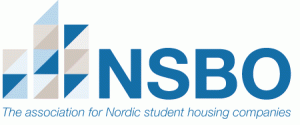
What was apparent from discussions, and the pre webinar survey completed, was that there were shared issues and concerns emanating from each of the different countries represented. These included vacancies, financial implications, practical ways to locate students to ensure ongoing support, and the rise in mental health related issues.
The UKTGA will continue to work with colleagues from the NSBO as well as other organisations, to ensure that we continue to provide you with up-to-date information within a national and global context on town gown relations.
The NSBO network is open for anyone with an interest in student housing from a Nordic perspective. As part of the network you receive our newsletter twice a year, new reports and invitations to our events. The conferences and meeting places organized by NSBO creates personal contacts between colleagues from the different countries and companies. These contacts have often led to further meetings, study visits, new knowledge and experiences.
Network benefits
- Invitation to all their events
- Contact access to student housing operators all over the Nordic countries
- NSBO Newsletter (twice a year)
- Reports and statistics
Join the NSBO network here:
Join the NBSO network by register your contact information below. If you have any questions, regarding the network or the Nordic student housing market, don’t hesitate to contact.
Town & Gown: Issues, Trends, Collaborations and Ideas for Today’s College Town
Enjoy and follow this Flipboard® online magazine, “Town & Gown: Issues, Trends, Collaborations and Ideas for Today’s College Town” – a roundup of news and information from across the US, UK and elsewhere that is for and about college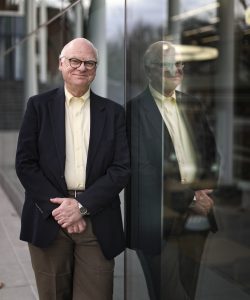 towns (https://flipboard.com/@marcwhitt/town-gown-issues-trends-collaborations-ideas-for-today-s-college-town-57sepl4ay). This free resource is edited by Marc Whitt (marc.whitt@uky.edu), Director of Media & Strategic Relations at the University of Kentucky’s Office of Public Relations and Strategic Communications. Marc also serves as a part-time instructor in UK’s Department of Integrated Strategic Communication and is a former member of the International Town & Gown Association Board of Directors. His first book, PR Lessons Learned Along the Way: Strategies, Tips & Advice for the Higher Ed and Nonprofit Public Relations Professional (Cherrymoon Media), is set for release in June 2020. Marc invites you to connect with him on Twitter (@marcwhitt) or LinkedIn (www.linkedin.com/in/marcwhitt).
towns (https://flipboard.com/@marcwhitt/town-gown-issues-trends-collaborations-ideas-for-today-s-college-town-57sepl4ay). This free resource is edited by Marc Whitt (marc.whitt@uky.edu), Director of Media & Strategic Relations at the University of Kentucky’s Office of Public Relations and Strategic Communications. Marc also serves as a part-time instructor in UK’s Department of Integrated Strategic Communication and is a former member of the International Town & Gown Association Board of Directors. His first book, PR Lessons Learned Along the Way: Strategies, Tips & Advice for the Higher Ed and Nonprofit Public Relations Professional (Cherrymoon Media), is set for release in June 2020. Marc invites you to connect with him on Twitter (@marcwhitt) or LinkedIn (www.linkedin.com/in/marcwhitt).
Exeter's Glass Caddy Scheme
Exeter University's Student Community Wardens have been delivering the termly 'Glass Caddy Scheme' for over five years and, due to increasing demand, we are pleased that we are now trialling the scheme as a monthly service.
The Glass Caddy Scheme simply involves collecting glass from multiple student properties who do not have access to a vehicle, and delivering the glass to the closest bottle bank. This scheme was initially developed with our Students' Guild in response to the fact that Exeter does not provide doorstep glass collections. Glass was sometimes being placed in grey waste and many students without cars struggled to transport the glass to glass banks.
The service is strictly offered to students without access to a vehicle. They also use the scheme to highlight the benefits of not taking a car to the city.
Using one collection vehicle to collate multiple glass donations into one glass bank 'visit', also reduces Exeter's carbon footprint.
The surge in demand for the service has led to a monthly trial of the scheme.
We are pleased to see that this recycling trend also coincides with a significant spike in student donations of unwanted goods to charities like The British Heart Foundation for their 'Give It Don't Bin It' campaign. Increased awareness of the recycle/reuse message has been very positive and we hope to build on this success with other projects.
JAM at Queen’s awarded Andrew Lloyd Webber Foundation funding to “unlock hidden talent"
Queen’s Junior Music Academy (JAM) has been successful in the latest round of funding by the Andrew Lloyd Webber Foundation, one of Britain’s leading charities supporting the arts and music.
The Foundation has awarded £14,760 to JAM at Queen’s to fund bursaries over the next three years for a new Strings programme. Additional funding has been provided by the Music for All programme to purchase new string instruments.
A total of £225,405 has been given to arts and heritage projects in Northern Ireland, Scotland and throughout England, aimed at breaking down barriers to participation in the arts. The Foundation has prioritised projects that engage young people and individuals from hard-to-reach and minority backgrounds.
The Andrew Lloyd Webber Foundation was set up by Lord Lloyd Webber in 1992 to promote the arts, culture and heritage for the public benefit; since inception Andrew has been the principal provider of funding for all its charitable activities.
Since 2011, the Andrew Lloyd Webber Foundation has given £20.5 million in grants and performing arts scholarships, positively affecting hundreds of thousands of people across the UK and beyond. In 2018 alone, it provided financial backing and sustainability to 111 projects, totalling over £3.1 million.
To read the full article, click here.
Exeter Boosts BHF Donations
A recent Impact Report from the British Heart Foundation has confirmed that University of Exeter Students have contributed significantly to charitable donations for the 2019 period.
Not only did students contribute to a record surge in charity shop donations, but the total value of bags donated in the 2019 period was £54,600, compared to £4788 the previous year.
BHF have calculated that these donations are equivalent to 31.2 Tons of items being diverted from the waste stream – this equates to 317,522 kgs of CO2 greenhouse gas emissions
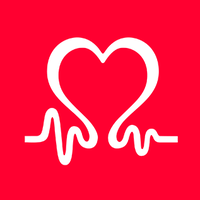
This significant increase is very encouraging and demonstrates a growing environmental awareness from students seeking to re-purpose re-usable items.
“A lot of additional work was carried out by the University’s Community Liaison Team to ensure that Students departing the city in the Summer had access to donation bags and drop-off points. Work has already begun on planning for this year’s scheme and we hope to see a further increase in donations”
Rory Cunningham, Community Liaison Manager
For more information regarding the British heart Foundations campaigns, visit their website: https://www.bhf.org.uk/

